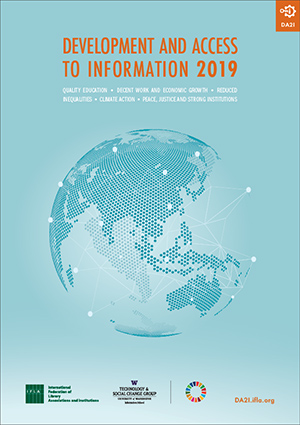 Access to information accelerates development, and libraries make this a reality for many people around the world. The 2019 Development and Access to Information (DA2I) Report offers new data, examples and arguments for placing libraries at the head of national development strategies.
Access to information accelerates development, and libraries make this a reality for many people around the world. The 2019 Development and Access to Information (DA2I) Report offers new data, examples and arguments for placing libraries at the head of national development strategies.
Twenty of the targets set forth by the United Nations Sustainable Development Goals (SDGs), recognize the importance of access to information, and the skills and attitudes necessary for people to meaningfully use it in their lives and their communities.
Produced by the International Federation of Library Associations and Institutions in partnership with the UW Information School’s Technology and Social Change Group, the report brings together data and perspectives from across the range of policy areas that fall under the SDGs.
It also provides an overview of regional trends in the key pillars of meaningful access to information – physical connectivity and use of this infrastructure, skills needed, social and economic factors, and the legal and policy environment. The report includes essays from external experts on the contribution of meaningful access to information in different development areas, and provides evidence about the contribution of libraries to advancing the SDGs.
Two years after the release of the first report, the second DA2I report was formally launched on May 22 at the Forum of Ministers and Secretaries of Culture of Latin America and the Caribbean and presented at the IFLA President’s Meeting 2019 in Buenos Aires on May 23.